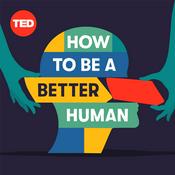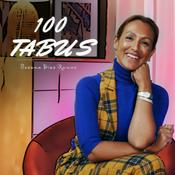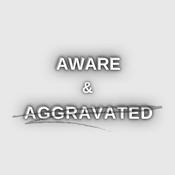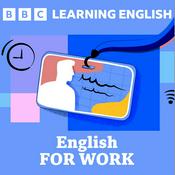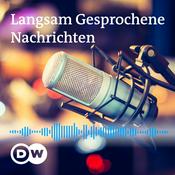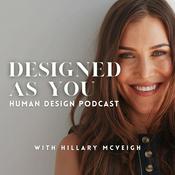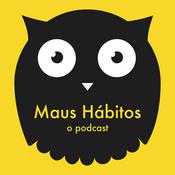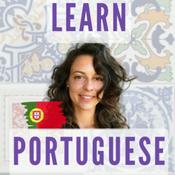91 episódios

12. Academic Freedom and Freedom of Speech: A Conversation with Roger J. Ward
19/11/2025 | 37min
In this conversation with EdUp Provost host Dr. Gregor Thuswaldner, Dr. Roger J. Ward discusses the chapter on academic freedom and freedom of speech he wrote for the Chief Academic Officer’s Handbook: A Provost’s Guide to Visionary Leadership. Dr Ward explains the critical distinctions between academic freedom and freedom of speech, emphasizing their importance in higher education. He explores the historical context of these concepts, the challenges faced by institutions today, and the limitations that exist within academic freedom. Dr. Ward also addresses the implications of recent political developments on academic freedom and the role of institutions in safeguarding these principles while promoting respectful discourse. Recorded in February 2025, this episode does not reflect the federal government's recent challenges to freedom of speech and academic freedom.Takeaways• Academic freedom is essential for faculty to teach and research without fear.• Freedom of speech is protected under the First Amendment, but not absolute.• The distinction between academic freedom and freedom of speech is crucial for academic leaders.• Recent societal changes impact how academic freedom is perceived and applied.• Institutions must navigate the balance between academic freedom and a respectful environment.

11. “Self-Management for Provosts:” A Conversation with Kevin R. Carman
12/11/2025 | 34min
In this conversation, EdUp Provost host Dr. Gregor Thuswaldner and Dr. Kevin R. Carman discuss the chapter on “Self-Management for Provosts” they co-wrote for The Chief Academic Officer’s handbook: A Provost’s Guide for Visionary Leadership (Johns Hopkins University Press, 2025). They offer insights on self-management for provosts, emphasizing the importance of building professional networks, striking a balance between visibility and personal time, and practicing mindfulness. Thuswaldner and Carman discuss effective delegation, the role of executive assistants, and strategies for managing email. The conversation also touches on navigating difficult personnel decisions and the value of continuous professional development.Takeaways• Provosts should engage with professional organizations to combat isolation.• Visibility on campus is crucial for provosts to connect with the community.• Carving out personal time is essential to avoid burnout.• Mindfulness practices can significantly improve well-being.• Effective delegation is key to successful leadership.

10. “At the Pleasure of the President:” A Conversation with Joan F. Lorden
05/11/2025 | 31min
In this conversation with EdUp Provost host Dr. Gregor Thuswaldner, Dr. Joan F. Lorden discusses her chapter, “At the Pleasure of the President,” from The Chief Academic Officer’s Handbook: A Provost’s Guide to Visionary Leadership (Johns Hopkins University Press, 2025). She offers valuable insights into the provost’s relationship with the president, emphasizing the importance of trust, communication, and balancing faculty needs with institutional priorities. Dr. Lorden explores strategies for building strong presidential partnerships, managing crises, preparing for leadership transitions, and navigating the complexities of fostering institutional growth and transformation.Takeaways• A newly hired provost should start with a reservoir of trust.• Honesty and transparency are crucial in building relationships.• Understanding the institution's culture is key for success.• Provosts must balance confidentiality with transparency to faculty.• Explaining funding streams to faculty is essential for trust.

9. Visible and Shadow Structures in Higher Education: A Conversation with Chris Heavey and Tondra De
29/10/2025 | 35min
In this conversation with EdUp Provost host Dr. Gregor Thuswaldner, Tondra De and Dr. Chris Heavey discuss the chapter on visible and shadow structures they wrote for The Chief Academic Officer's Handbook: A Provost’s Guide to Visionary Leadership. They examine the significant distinctions between visible and shadow structures in higher education, highlighting the importance of comprehending both for effective leadership. The discussion covers strategies for fostering collaboration, navigating informal networks, and addressing silos within institutions. They also explore the significance of communication, the role of provosts in shaping campus culture, and the importance of self-awareness and constructive feedback for effective leadership development.Takeaways• Visible structures are formal and documented processes.• Shadow structures are informal and influential networks.• Effective communication fosters collaboration and minimizes conflict.• Building personal relationships is key to navigating shadow structures.• Transparency helps combat misconceptions about the provost's office.

8. “Seasons of a Provost:” A Conversation with Kathy E. Johnson and Beth Ingram
22/10/2025 | 34min
In this conversation with EdUp Provost host Dr. Gregor Thuswaldner, Dr. Kathy E. Johnson and Dr. Beth Ingram discuss their chapter “Seasons of a Provost” in The Chief Academic Officer's Handbook: A Provost’s Guide for Visionary Leadership (Johns Hopkins University Press, 2025). They explore the often-overlooked topic of provost career transitions, the importance of aligning with presidential vision, and the necessity of having a plan B for unexpected changes. They also delve into the dynamics of cabinet relationships, fostering faculty relations, and the reflective practices that can guide provosts in assessing their career paths. The conversation concludes with personal reflections on knowing when to stay or go in one's career and book recommendations that emphasize empathy and understanding in leadership.Takeaways• Provosts often operate in the background compared to presidents.• Career transitions for provosts are rarely discussed openly.• Aligning with the president's vision is crucial for provosts.• Having a plan B is essential due to high turnover rates.• Building a network of support can provide valuable insights.
Mais podcasts de Ensino
Podcasts em tendência em Ensino
Sobre EdUp Provost
Ouve EdUp Provost, Learning English Conversations e muitos outros podcasts de todo o mundo com a aplicação radio.pt

Obtenha a aplicação gratuita radio.pt
- Guardar rádios e podcasts favoritos
- Transmissão via Wi-Fi ou Bluetooth
- Carplay & Android Audo compatìvel
- E ainda mais funções
Obtenha a aplicação gratuita radio.pt
- Guardar rádios e podcasts favoritos
- Transmissão via Wi-Fi ou Bluetooth
- Carplay & Android Audo compatìvel
- E ainda mais funções


EdUp Provost
descarregue a aplicação,
ouça.




